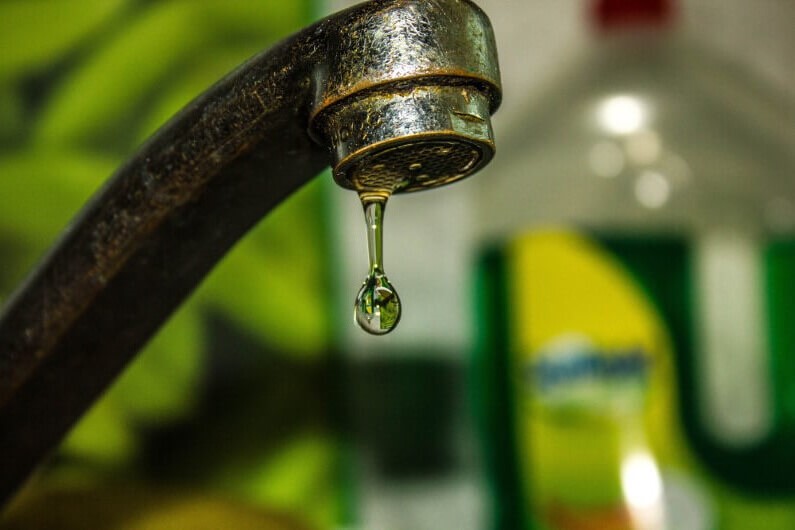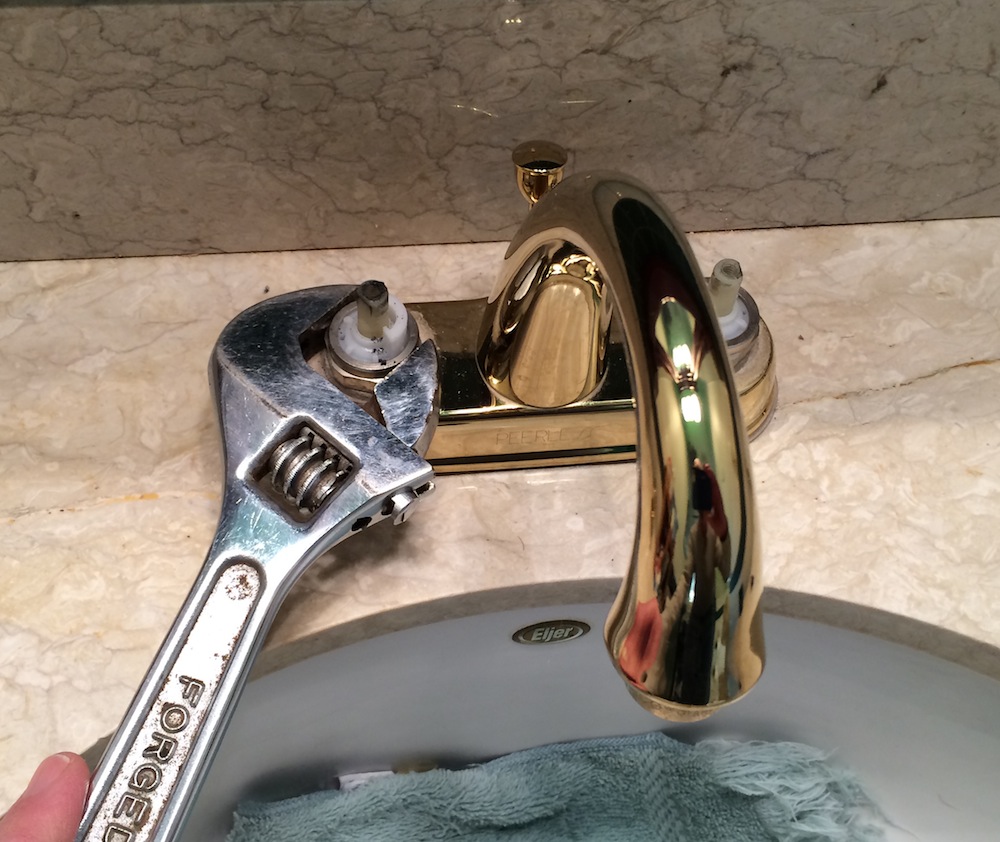When It's Vital to Fix a Dripping Faucet
When It's Vital to Fix a Dripping Faucet
Blog Article
We've discovered this article relating to Why It's Important to Fix Leaky Faucets listed below on the net and figured it made sense to talk about it with you on this site.

Dripping faucets might appear like a minor aggravation, however their effect exceeds just the aggravation of the noise. From drainage to incurring unneeded monetary expenses and health and wellness dangers, ignoring a leaking tap can cause numerous repercussions. In this write-up, we'll look into why it's important to address this common family problem quickly and properly.
Waste of Water
Ecological Influence
Dripping taps add dramatically to water wastefulness. According to the Epa (EPA), a single tap trickling at one drip per second can squander greater than 3,000 gallons of water each year. This not only strains water resources yet likewise influences ecosystems and wild animals based on them.
Step-by-Step Overview to Taking Care Of a Dripping Tap
Tools Required
Prior to trying to fix a dripping tap, gather the needed tools, including an adjustable wrench, screwdrivers, substitute components (such as washers or cartridges), and plumber's tape.
Typical Tap Issues and Their Solutions
Determine the kind of faucet and the certain problem triggering the drip. Common problems consist of worn-out washing machines, corroded valve seats, or defective O-rings. Describe maker directions or on the internet tutorials for step-by-step support on repair services.
Financial Prices
Boosted Water Costs
Past the environmental impact, leaking faucets can pump up water bills substantially. The built up waste over time converts right into higher energy costs, which could have been avoided with timely repair work.
Potential Home Damages
Furthermore, prolonged leaking can result in damage to components and surface areas bordering the tap. Water buildup can trigger discoloration, corrosion, and even structural issues if left neglected, leading to added repair work prices.
Health Concerns
Mold and Mold Growth
The constant visibility of wetness from a trickling tap produces an excellent environment for mold and mildew development. These fungis not only jeopardize indoor air top quality yet additionally present health and wellness dangers, particularly for people with breathing conditions or allergies.
Waterborne Conditions
Stationary water in trickling faucets can come to be a breeding ground for bacteria and various other microorganisms, boosting the threat of waterborne diseases. Contaminants such as Legionella bacteria grow in stationary water, potentially bring about severe health problems when ingested or inhaled.
DIY vs. Professional Fixing
Benefits and drawbacks of DIY Repair
While some might try to fix a trickling tap themselves, do it yourself repair work come with their own set of challenges. Without appropriate knowledge and devices, do it yourself attempts can worsen the issue or result in insufficient repair work, lengthening the problem.
Benefits of Hiring a Specialist Plumber
Hiring a professional plumber guarantees that the underlying reason for the leaking faucet is resolved successfully. Plumbing professionals have the expertise and devices to diagnose and repair faucet problems efficiently, conserving time and reducing the risk of more damage.
Ecological Obligation
Specific Contribution to Preservation
Taking responsibility for fixing trickling faucets straightens with broader efforts towards water preservation and ecological sustainability. Every individual's actions jointly make a significant effect on protecting precious sources.
Sustainable Living Practices
By focusing on prompt repair services and adopting water-saving habits, people add to lasting living techniques that benefit both existing and future generations.
Preventive Measures
Routine Maintenance Tips
To avoid leaking faucets, carry out regular upkeep such as cleansing aerators, examining for leakages, and replacing worn-out components promptly. Additionally, take into consideration mounting water-saving tools or updating to extra reliable components.
Significance of Prompt Repair Works
Dealing with dripping faucets as quickly as they're noticed stops additional water wastefulness and potential damages, ultimately saving both water and cash in the long run.
Impact on Residential Property Value
Perception of Well-Maintained Residential Or Commercial Property
Maintaining a residential property in good condition, including resolving maintenance concerns like leaking faucets, boosts its regarded worth and worth among potential purchasers or lessees.
Influence on Resale Worth
Characteristics with well-maintained plumbing components, including faucets, command greater resale values in the property market. Dealing with dripping taps can add to a favorable impression during residential or commercial property assessments and arrangements.
Final thought
Attending to a trickling faucet surpasses mere benefit; it's a necessary step toward preserving water, lowering financial prices, and guarding health and home. Whether through do it yourself repairs or professional assistance, acting to fix dripping taps is a little yet impactful means to promote accountable stewardship of resources and contribute to a healthier, more lasting future.
How to Fix a Leaky Faucet: Step-by-Step Repair Guide
A leaky faucet may seem like a simple annoyance, but if it's not fixed promptly, that leak could cost hundreds to potentially thousands. From water damage to mold, mildew, and high water bills, even a tiny leak can be catastrophic if left unattended. Damage like this can even affect the overall value of your home, so it's important to take the right approach for leaky faucet repair. You may need the help of a plumber in some cases, but we've got a few tips you can try on how to fix a leaky faucet before calling the pros.
Four Faucet Types
When you're learning how to fix a leaky faucet, the first step is knowing what kind of faucet you're working with! There are four common types.
Cartridge Faucets
Cartridge faucets come in one- or two-handled varieties. In one-handled cartridge faucets, hot and cold water combines in a single cartridge. In the two-handled versions, hot and cold water are controlled separately and mixed in the faucet.
Ball Faucets
Ball faucets have a single lever you push up and down to adjust the pressure and rotate to change the temperature. A slotted metal ball controls the amount of water allowed into the spout.
Compression Washer Faucets
They're the oldest type of faucet, but they're still used in many homes — especially older ones. Compression faucets have two separate handles that, when turned, raise or lower the washer that seals a water valve. This valve stops water from flowing through the faucet when it is turned off.
Disc Faucets
Disc faucets rarely need to be repaired due to their maintenance-free design. The water flow is controlled by two discs — the upper one raises and lowers against a fixed lower disc, creating a watertight seal. If your disc faucet starts leaking, you may need to replace the seals or clean residue buildup from the inlets.
Fixing a Leaky Faucet
Step 1: Turn Off the Water
Whether you're learning how to fix a leaky bathtub faucet or how to fix a leaky kitchen faucet, always turn off the water supply to your working area when you're fixing a leak. The last thing you want is a flood added to your list of things to fix.
Look for the shutoff valves below your sink or around the tub and turn them clockwise to stop the water flow. If your faucet doesn't have shutoff valves, you may need to turn off the water for the whole house. Check to make sure it's off by turning the faucet on. If nothing comes out, you're ready to start the repair.
Step 2: Take Apart the Faucet
How you disassemble your faucet depends on the type of fixture you have. You can use a flathead screwdriver to remove the caps on top of the handle or handles for cartridge and compression faucets. Inside, you should see handle screws. Unscrew these with a screwdriver to remove the handle.
Disc- and ball-style faucets will typically have an inlet screw near the handle, and removing that will reveal the interior of the faucet.
Detach the Valve Stem
For cartridge- and compression-style faucets, you'll see the inner valve stem or cartridge once you remove the faucet handles. If you have a compression faucet, unscrew the brass valve stem. If you have a cartridge faucet, pull out the cartridge. If your cartridge has been in place for a while, it may require some tools or extra force to remove it due to mineral deposits.
Examine and Replace Parts
Once you've removed the parts, check them out to confirm what needs to be replaced. You may see corroded rubber washers, O-rings, stems, or cartridges. On a ball-style faucet, check the seats and springs for damage.
If you need to repair a leaky disc faucet, check the inlet and seals on the lower disc.
Once you determine what parts must be replaced, visit your local hardware store. Bring the damaged parts with you to ensure you can purchase the correct components to replace them.
Clean Valves and Faucet Cavity
If you've removed a stem or cartridge, you may notice mineral buildup in the faucet's threads. Use white vinegar to clean the valve seat by soaking it for a few minutes, then scrub it away with a soft toothbrush and rinse with warm water. You can also clean the interior of the faucet in the same way.
Reassemble the Faucet
Once your faucet is cleaned and the required parts have been replaced, it's time to reassemble it. Put the pieces back together and slowly turn the water supply back on. Doing this slowly is crucial because too much initial water pressure can damage the new hardware you've just installed.
https://homewarranty.firstam.com/blog/how-to-fix-leaky-faucet

I'm certainly very fascinated by What Causes Leaky Faucets & How To Fix Them and I really hope you enjoyed reading the entire blog post. Loved our piece of writing? Please share it. Help somebody else check it out. I appreciate reading our article about Why Are My Faucets Dripping (And Can I Fix It Myself)?.
Report this page